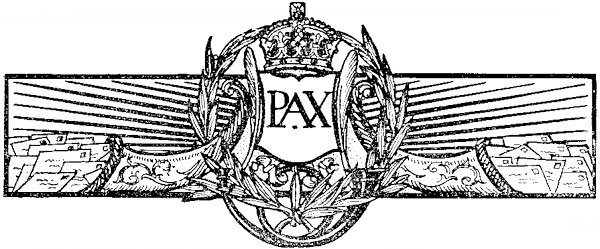Roman Provincias > Provincia Gallia Aquitania
Provincia Gallia Aquitania

Background
Provincia Gallia Aquitania, commonly referred to as Aquitania, was a Roman province located in the southwestern part of modern-day France, encompassing the region between the Pyrenees Mountains to the south and the Garonne River to the north. Here's an overview of the province:
Conquest and Formation:
Aquitania was established as a Roman province during the reign of Emperor Augustus in the 1st century BCE. It was created as part of the Roman conquest of Gaul, following the defeat of the Celtic tribes in the region. The province was named after the Aquitani, the indigenous Celtic people who inhabited the region prior to Roman conquest. It was initially governed by a Roman proconsul or governor appointed by the emperor.
Geography:
Aquitania was characterized by diverse geographical features, including the Pyrenees Mountains to the south, the Atlantic Ocean to the west, and the Garonne River valley to the north. It encompassed fertile plains, rolling hills, and coastal areas. The region benefited from its mild climate and abundant rainfall, which supported agriculture, particularly the cultivation of grains, grapes for wine production, and olives.
Urban Centers and Infrastructure:
Burdigala (modern-day Bordeaux) served as the capital and largest city of Aquitania. It was an important commercial, administrative, and cultural center, boasting Roman monuments such as temples, theaters, and forums. Other significant cities in the province included Tolosa (modern-day Toulouse), Vesunna (modern-day Périgueux), and Aginnum (modern-day Agen). These cities were connected by a network of roads, bridges, and aqueducts constructed by the Romans to facilitate transportation and trade.
Economy and Resources:
Aquitania was an economically prosperous region, known for its agriculture, trade, and natural resources. The province produced a variety of crops, including grains, grapes, olives, and fruits, which were cultivated in the fertile plains and river valleys. Wine production was a major industry in Aquitania, with the province exporting wine to other parts of the Roman Empire. Other important economic activities included fishing, timber production, and mining of iron, lead, and salt.
Culture and Society:
The population of Aquitania was ethnically diverse, consisting of Roman settlers, indigenous Aquitani, Celts, and other ethnic groups. Latin was the administrative language of the province, although indigenous languages may have also been spoken. Romanization had a significant impact on the culture and society of Aquitania, with Roman customs, laws, and institutions gradually replacing indigenous traditions. Roman religious beliefs and practices coexisted with local cults and deities, and temples dedicated to Roman gods and goddesses were erected throughout the province.
Legacy and Decline:
Aquitania remained under Roman rule until the decline of the Western Roman Empire in the 5th century CE. Following the Roman period, the region was ruled by various powers, including the Visigoths, the Franks, and later medieval and modern France. The legacy of Roman Aquitania endures in its archaeological sites, monuments, and cultural heritage, which provide valuable insights into the history of the region and its interactions with the broader Roman Empire.
Roman Provincias
Roman Provincias List
- Provincia Achaea
- Provincia Aegypti
- Provincia Africa Proconsularis
- Provincia Cottiae
- Provincia Maritimae
- Provincia Alpes Poeninae
- Provincia Arabia Petraea
- Provincia Armenia
- Provincia Asia
- Provincia Assyria
- Provincia Augustamnica
- Provincia Bithynia et Pontus
- Provincia Britannia Inferior
- Provincia Britannia Superior
- Provincia Britannia
- Provincia Byzacena
- Provincia Cappadocia
- Provincia Cilicia
- Provincia Corsica et Sardinia
- Provincia Crete et Cyrenaica
- Provincia Cyprus
- Provincia Dacia Aureliana
- Provincia Dacia
- Provincia Dalmatia
- Provincia Galatia
- Provincia Gallia Aquitania
- Provincia Gallia Belgica
- Provincia Gallia Lugdunensis
- Provincia Gallia Narbonensis
- Provincia Germania
- Provincia Germania Inferior
- Provincia Germania Superior
- Provincia Hispania
- Provincia Hispania Baetica
- Provincia Hispania Citerior
- Provincia Hispania Lusitania
- Provincia Hispania Tarraconensis
- Provincia Hispania Ulterior
- Provincia Iudaea
- Provincia Lycia et Pamphylia
- Provincia Macedoniae
- Provincia Mauretania
- Provincia Mauretania Caesariensis
- Provincia Mauretania Tingitana
- Provincia Mesopotamia
- Provincia Moesia
- Provincia Moesia Inferior
- Provincia Moesia Superior
- Provincia Pannonia
- Provincia Pannonia Inferior
- Provincia Pannonia Superior
- Provincia Pannonia Valeria
- Provincia Raetia
- Provincia Sicilia
- Provincia Sophene
- Provincia Syria
- Provincia Syria Palaestina
- Provincia Syria Phoenice
- Provincia Thracia